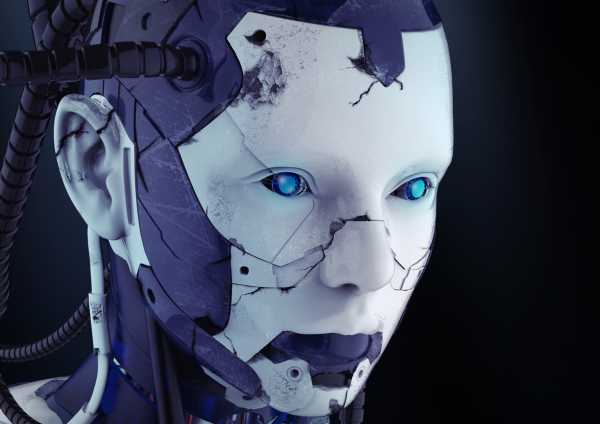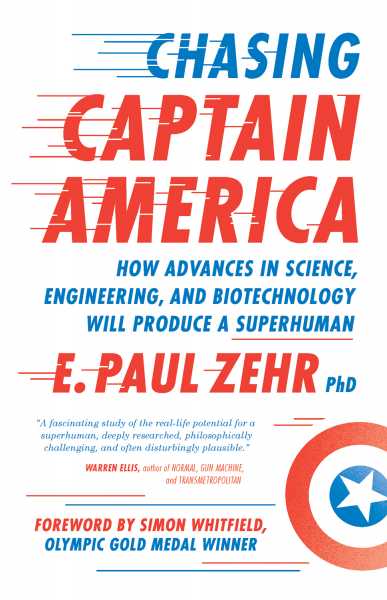
There are a lot of things worth worrying about these days: wealth inequality, climate change, advances in artificial intelligence, and so on.
But bioengineering and its potential unintended consequences are arguably as scary as any of these things.
As my Vox colleague Eliza Barclay reported last year, scientists have already made major breakthroughs in gene editing technology, tinkering with embryos to repair DNA and help fend off disease-causing mutations. And this is likely just the beginning of what’s possible.
Bioengineering is allowing human beings to take control of their own evolution. Whether it’s emergent cloning technologies or advanced gene therapy, we’re quickly approaching a world in which humans can — and will — change the way we live and die.
E. Paul Zehr is a neuroscientist and author of Chasing Captain America, a new book about how advances in biotechnology may lead to the creation of “superhumans,” of the sort depicted in the film Avengers: Infinity War or in comic books like Captain America, in which the hero, Steve Rogers, is given an experimental serum that alters his biology and turns him into a super soldier.
While we’re still likely a couple of decades away from this, we’re a lot closer than people think — and there are a ton of things that could go wrong along the way.
I reached out to Zehr to talk about this new world we’re creating and the many ways it could go badly.
A lightly edited transcript of our conversation follows.
Sean Illing
Your book implies that the creation of something like a “superhuman” is inevitable. What will this superhuman look like?
E. Paul Zehr
The superhuman will look like a variety of different things, and in many cases will look just like us. When we talk about applying this technology and these advances, we’re talking about internal adaptations and gene editing, things that affect enzymes and metabolic pathways. So people enhanced by these technologies will see their capabilities massively improved, but you wouldn’t necessarily notice anything else different about them.
Imagine an unusually gifted athlete, someone like Wayne Gretzky or Michael Jordan. They look more or less like a normal human being, but they’re just quicker, smarter, more capable than everyone else. That’s sort of what we’re talking about here.
Sean Illing
In the book, you talk about using these technologies to eliminate hearing or vision deficiencies, or to help people with other physical disabilities. But it seems just as likely, if not more so, that they’ll be co-opted by the rich or abused by governments for military purposes.
E. Paul Zehr
That’s fair. This is how I’m envisioning it. But we’re the first species to have the ability to change its own biology, and I think this is the next step in the evolution of our species. Having said that, there’s no doubt that these technologies can be taken in any number of directions.
We could use these technologies to produce supervillains. You could imagine an Island of Doctor Moreau kind of concept where a lot of these technologies could be used to extremely enhance only one thing, like giving growth hormone treatments to young people to make them much taller or to give them gigantic, optimized muscles that would distort the range of proportions we’re used to seeing in people now.
And we could imagine countless other possibilities. So yes, there is no guarantee that these advances will be good for us.
“We could easily produce a horrible world of haves and have-nots where the haves are an entirely different class of people, which is an absolute dystopian nightmare”
Sean Illing
How close are we to scaling up these technologies?
E. Paul Zehr
Well, it depends on what we’re looking to enhance and how dramatically we’re looking to enhance it. Plenty of simple enhancements are already possible but are reserved for a select group of people due to the enormous costs. But if we’re talking about the full package, like literally Steve Rogers and Captain America, where we have stem cell implants and gene editing and biotech implants and brain enhancements and massive physiological enhancements — that’s probably 20 years away, which is really not that far.
Sean Illing
No, it’s not. So you say at the end of the book that we have to create this superhuman person, that we’re almost obliged to. That seems reckless to me. You even admit that we can’t be sure we won’t mess this up, so why we should we persist anyway?
E. Paul Zehr
That’s an interesting point, and my thinking on this changed over the course of the book. When I started, this was a cautionary, Frankenstein-like tale. But as I wrote the book, I couldn’t figure out why I felt this way, except that all of this just seemed wrong somehow.
But if we can give someone a vaccine to prevent an illness, or if we can help someone think clearer, or if we can give someone better vision or make them a little stronger, I think we’re obliged to do it. Why shouldn’t we strive to improve the human condition?
Sean Illing
Sure, we want to improve the human condition, but intentions and outcomes don’t always align, and we could end up doing far more harm than good.
E. Paul Zehr
Right, which is why I think these things need to be done very incrementally and we have to think it through in advance rather than rolling out something like the full-on military experiment you see in the Captain America origin story, where everything gets enhanced all at once without any kind of knowledge about what it might do or how it might work.
We need to go very slowly and be careful about how we do this. With gene editing, for example, we have to avoid making edits that would tinker with egg cells and sperm that would impact children that came out of these enhanced folks. We don’t want cascading effects for our entire species.
But look, one of the reasons I support this is because it’s going to happen anyway. People are going to develop this technology whether we want them to or not, so we may as well get ahead of the curve and establish ground rules as best we can.

Sean Illing
I’m all about laying down rules, but are the governments and companies developing these technologies seriously reckoning with the potential downsides? Or are they just speeding headlong into this new world?
E. Paul Zehr
I have to say that I didn’t find a lot of evidence that the people developing these technologies were giving much forethought to the potential consequences. Maybe some of that is going on in the background, but I didn’t see it. So yes, I think we’re speeding toward a new world without really thinking it through, which is part of the reason I wrote this book. But I continue to believe that the potential benefits for our species outweigh the risks
Sean Illing
Who’s at the forefront of this research? Are we talking about a handful of governments or private companies?
E. Paul Zehr
That’s not entirely clear. There are many different independent efforts going on all over the place, each addressing little issues that are part of the bigger picture around overall human enhancement. A lot of it is centered on defense and military applications, but there’s not much public information available, so we don’t know the details.
There are plenty of experiments going on where people are injecting motor skills into the brains of monkeys by electrical stimulation to help them learn faster or deleting regulatory protein for muscle strength or looking at a stem cell implants into another species to enhance its cognitive ability. But these are happening at different laboratories around the world.
There is no one place or institution where all of these things are concentrated, which is why I don’t think a super-soldier Captain America program is rolling off the shelf anytime soon. But there’s no doubt that it will happen eventually as all these threads of research start to converge.
Sean Illing
Here’s my big concern: These enhancement technologies will continue to develop and, eventually, will become available to private consumers. When that happens, it will invariably be the richest and most powerful people who get their hands on it first. It’s not hard to see how this could produce a biologically bifurcated world with unimaginable inequalities.
E. Paul Zehr
Of course, and I worry about that too. We could easily produce a horrible world of haves and have-nots where the haves are an entirely different class of people, which is an absolute dystopian nightmare.
Again, this is why I wrote this book. I think we have to be more vigilant about what’s coming around the corner so that we don’t tumble down this slippery slope. We want these technologies to be distributed equitably and not simply left in the hands of the highest bidders.
A lot of folks aren’t thinking ahead about all the implications of their research; they’re trying to answer a specific question now and that takes them to another question, and then by the time they’ve done a whole bunch of experiments, they’ve traversed quite a ways on the path of discovery and we wind up in a place we never intended to be.
Sean Illing
In the book, you say that we’re wise enough not to destroy ourselves. I think that’s just wrong. I take your point that it’s in our nature to constantly exceed our limits, but as our capabilities rise, so do the stakes. I don’t think we’re nearly as wise as you hope, and I think it’s dangerous to assume otherwise.
E. Paul Zehr
It’s a fair point, and we may just have a different philosophical approach to life. But yes, both outcomes are absolutely possible. I don’t believe there’s any chance that we’ll create a utopia, but I do think that we can improve the human condition for everyone. The potential for something like a dystopia is very real, however, and I understand that too.
One of my objectives in writing this book was to have conversations like this. Hopefully people will start to care more about these issues and start to ask more questions before it’s too late. Again, I think this stuff is going to happen no matter what, so we’ve got to ahead of it as much as possible. What else can we do?
Sourse: vox.com






